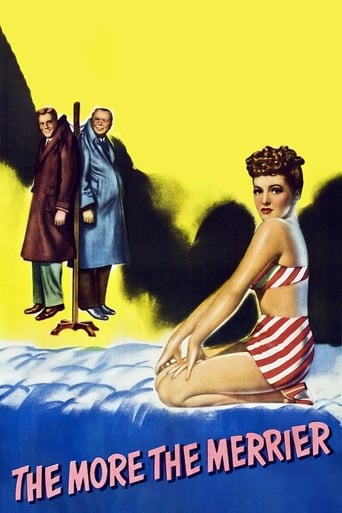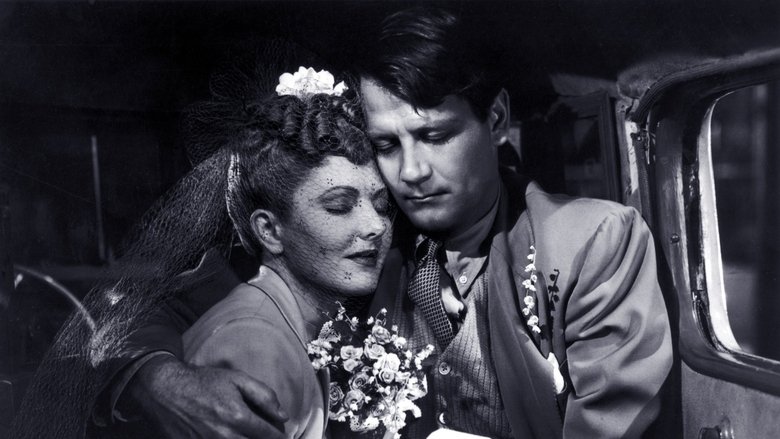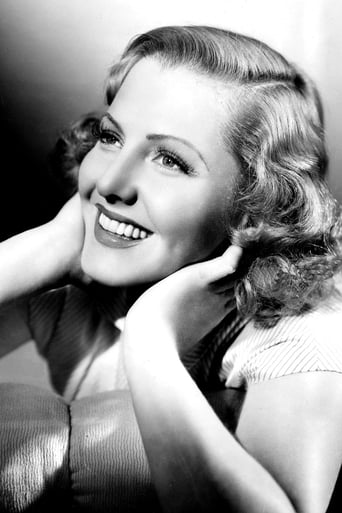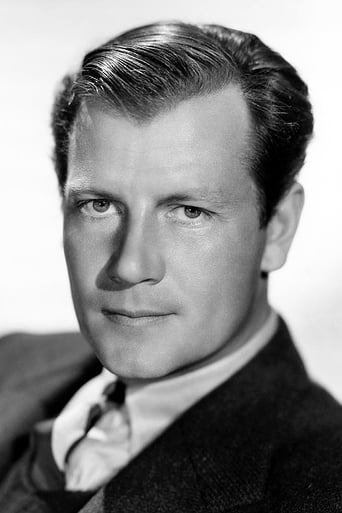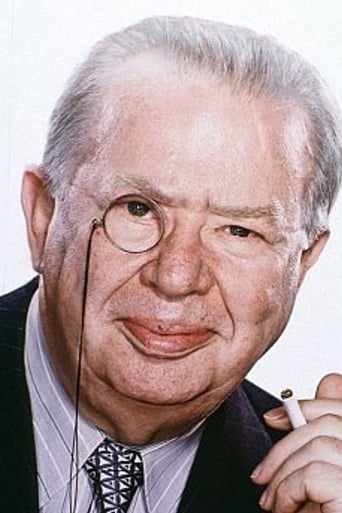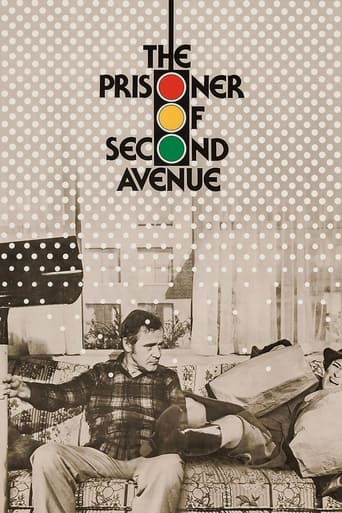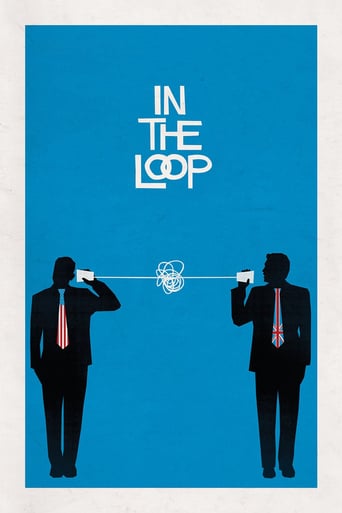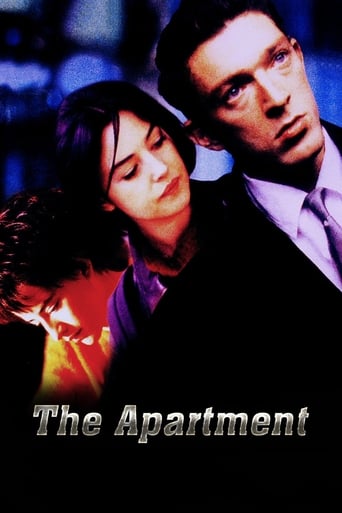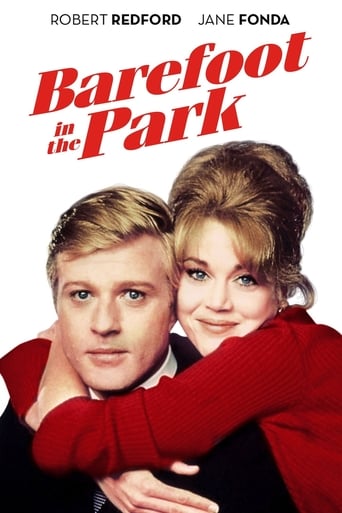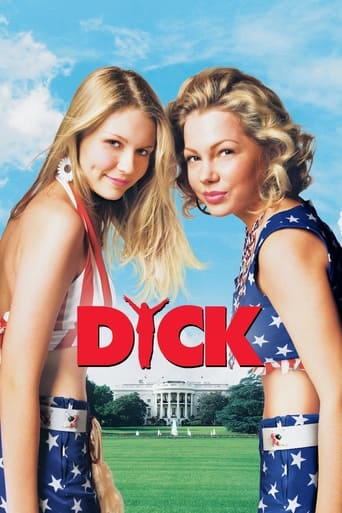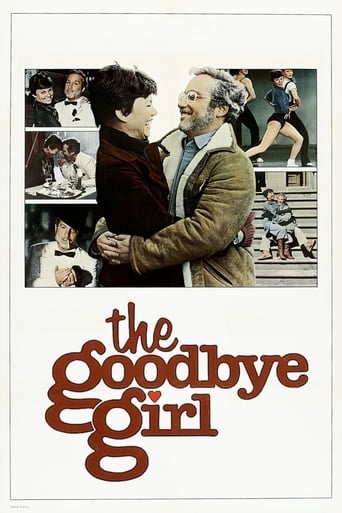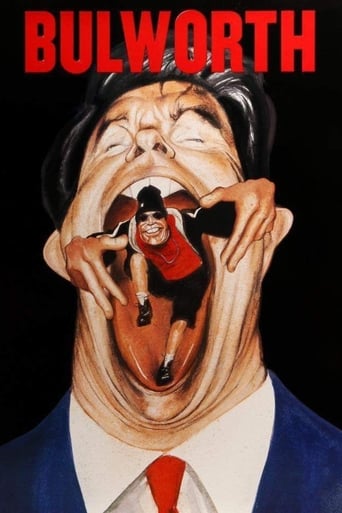The More the Merrier (1943)
It's World War II and there is a severe housing shortage everywhere - especially in Washington, D.C. where Connie Milligan rents an apartment. Believing it to be her patriotic duty, Connie offers to sublet half of her apartment, fully expecting a suitable female tenent. What she gets instead is mischievous, middle-aged Benjamin Dingle. Dingle talks her into subletting to him and then promptly sublets half of his half to young, irreverent Joe Carter - creating a situation tailor-made for comedy and romance.
Watch Trailer
Cast


Similar titles
Reviews
That was an excellent one.
Fresh and Exciting
As Good As It Gets
Excellent and certainly provocative... If nothing else, the film is a real conversation starter.
This superior romantic comedy features Charles Coburn and Joel McCrea as short-stay transients in wartime Washington, D.C., looking for a place to bed down for about a week. Jean Arthur is a working resident looking for a roommate to help pay the rent , while doing a bit to relieve the severe housing shortage in the nation's capital, due to the influx of people to work in the offices and plants relating to the war. Joan put an ad in the paper, but failed to specify that she was looking for a female. Hence, she was shocked when Coburn showed up, having tricked the many other hopefuls into believing the position was taken. At first, Jean was adamant that she would not tolerate a man as a roommate, even an old grandfatherly-looking one. But Coburn blustered and bullied his way in to her spare room. He would soon get an earful of her mandatory wakeup routine, from 7 to 7.30, each morning. One of the comedic highlights of the film has Coburn trying to conform to her schedule......While Jean is at work, Coburn takes it upon himself to sublet half of his room to another street wander: McCrea. Some humor results from McCrea getting used to his new abode. Again, Jean is shocked that she has an additional male roommate, even if only for perhaps a week......In the morning, Coburn talks to a committee about the need for new housing, even if just temporary. Later, Coburn finds and reads the last part of Jean's diary, especially, her first impressions of McCrea. When she catches him reading, she goes through the roof, then goes to her room, and cries. She orders them to leave by morning. Coburn has a pre-arranged hotel room, so he's not too disturbed, but McCrea has only another 2 days before he leaves for Africa. Thus, she relents and allows him to stay those days. Well, as you can guess, romance eventually enters the picture. But there's a problem: Jean is engaged to a Mr. Pendergast. See the film to find out how things turn out......The most fun part of the film is the first part, where Coburn and Jean much interact. But, the last part isn't excessively dull. only in comparison....See it on YouTube
I feel it's important to mention some caveats before I start gushing about this movie: I don't enjoy every single scene of The More the Merrier, the last comedy George Stevens ever directed. Occasionally the film feels dated, and all the casual talk about "Japs" is bound to make other modern-day viewers feel uncomfortable as well (though it's worthwhile to keep the context in mind). But when The More the Merrier hits its stride, it's funny, sweet, romantic, daffy, and everything a great screwball comedy should be. It's terrifically enjoyable without denying the realities of the time.We're in Washington in 1942, when the proliferation of war jobs and servicemen passing through resulted in a huge housing problem. Even an elderly retired millionaire like Benjamin Dingle (Charles Coburn), who arrives in the city as a Senate-sponsored consultant two days ahead of schedule, finds that he is not guaranteed a place to stay. The cheerful, gleefully manipulative Mr.Dingle finds a room for rent in the paper, fools a gaggle of other prospective tenants into getting out of his way, and railroads the apartment's occupant, prim government worker Connie Milligan (Jean Arthur), into letting him stay. She wanted to rent to a woman to prevent raised eyebrows among her neighbors (which, given the time, was certainly a risk), but she barely gets a peep in before Dingle's setting up shop.After unilaterally deciding that what his pretty, somewhat tightly wound roommate needs is a "high-type, clean-cut, nice young fella" (and epically failing at sticking to Connie's baffling morning schedule) Mr. Dingle proceeds to rent half of his room to another prospective tenant. He finds one in Sgt. Joe Carter (Joel McCrea), a soldier set to ship out to the front in a week. Dingle initially tries to keep Joe and Connie from noticing the other's existence, but that can only last so long. Connie is unable to kick out either of her new roomies and so attempts to adjust, though she makes it clear that she's engaged to her boss and so off the market. But Dingle, a self-appointed cupid, has other ideas--he senses that this Mr. Charles J. Pendergast is a stuffy bore (he's right), and slyly maneuvers Connie and Joe toward each other. It doesn't hurt that the two seem to operate on the same wavelength (an adorable early scene has them both doing the rumba by themselves in separate rooms). Eventually they cannot hide their attraction to each other, though the war inevitably gets in the way. The performances are what make The More the Merrier irresistible. Coburn, delightfully cheeky, won an Oscar for his turn as the benevolently Machiavellian matchmaker. But the chemistry between Arthur and McCrea deserves special mention. It's a wonder that their scene on Connie's front stoop got past the censors--while there's nothing R-rated, things get a little "tactile"--but it's breathtakingly sexy. The next scene, where the thin wall that separates their bedrooms allows them to talk to each other, is equally powerful in a more poignant, understated way. I think this movie has made me a lifelong fan of both actors. The film has some flaws--some slightly unconvincing crying, and the aforementioned "Japs" issue--but don't let that deter you. There's a reason the term "underrated classic" so often follows the mention of The More The Merrier. In some ways it's a product of its time, but its emotional grace notes about love, lust, and taking risks haven't aged a bit.
It doesn't begin with much in the way of promise. Coburn has come to the crowded Washington, DC, in 1943, where real estate is at a premium. He bluffs his way into sharing the multi-bedroom apartment of Arthur, who is engaged to a rather dull bureaucrat who wears an obvious toupee. While she's at work, Coburn decides to invite Joel McCrae to join him in sharing the bedroom. Arthur returns, discovers what's happened, and tries to throw them both out. Too jammed up, you know. People bumping into one another and having trouble scheduling baths. It all sounds a little like a pilot for a failed television sitcom with a name like "Three's A Crowd." But it picks up interest as the plot takes its inevitable course. The foxy Coburn manages to get the engaged Arthur and the soon-to-leave-for-Africa Sergeant McCrae married. Was there ever any doubt? Three things save this gentle comedy from mediocrity. George Stevens' direction is just about flawless. He was later to go on to some splendid dramas, like "A Place In The Sun", and a superb Western, "Shane." But he had earlier handled comic material, like Laurel and Hardy shorts. And in 1943, a time when the typical comedy had turned frenzied, he's slowed things down considerably. Yes, there's a pratfall or two, and someone's trousers disappear out the window, but as the romance progresses the comedy becomes nuanced.I assume that it's the director who decided to break the fourth wall -- pretty innovative for the period unless you're Berthold Brecht or somebody. The audience is addressed directly (but wordlessly) twice. The first time, Arthur discovers that Coburn, on the other side of a paper thin wall, can be as clearly heard as if he were next to her in bed. She turns a stunned face to the camera and stares. Nice try, but no cigar. A bit later, the phonograph is playing a samba version of Cole Porter's "What Is This Thing Called Love." The rhythm is infectious. Arthur begins to sway to it in the kitchen. In the hallway, the pudgy Coburn listens for a moment then begins a few clumsy steps. On the climactic note, he turns directly to the camera, puts his fingers behind his ears, and does a little grind house bump. Bingo!Another thing that makes it a little different from others of its period genre is Joel McCrae's performance. McCrae had done a lot of light comedy before and was always convincing as the breezy, light-hearted, easy-going guy next door. Not here. He plays it rather glum and humorless, which makes his comic lines that much more effective. I don't think he ever laughs, and he only rarely smiles. Stevens gets a lot of mileage out of glances and stares and makes the most of what wit is in the script, which isn't too much.If you can get past the opening set up, you'll find a winning movie, full of quiet smiles and warmth. And, while hardly trying, and while studio bound, the movie evokes nostalgia for an earlier American life style when people felt wrapped up in a common enterprise and shared a common goal. Office walls display Liberty Bond posters or other patriotic iconography. On a Sunday afternoon, in the middle of summer, neighbors flock to the roof tops and lie in the sun, chatting, drinking soda, reading aloud the Dick Tracy comics in the newspaper. Much more was being shared than a two-bedroom apartment.
The war-time influx of people Into Washington, D.C., had created a major housing shortage by 1943. As a patriotic gesture Connie (Jean Arthur) advertises a spare room in her apartment. Benjamin Dingle (Charles Coburn), a dignified senior citizen with an appointment with a Senator, has arrived in Washington 2 days early for his hotel reservation. There are no vacancies anywhere. But he spots Connie's ad and boldly tricks the line of other people who answered the ad to leave. Then he talks Connie into subletting half the apartment to him even though she intended to only accept a lady tenant. He then rents half of his half to Joe Carter (the ruggedly handsome Joel McCrea) without telling Connie about it. That is the premise of this situation comedy.I watched this on TCM and think it may have been an abridged version. In one instance the scene switched from the main characters inside the apartment to everyone (not just the main characters but many extras who I suppose were meant to be other residents of the apartment building) enjoining the sun on the roof-top. Also, there possibly was some earlier scene introducing the relationship between Connie and her teenage friend, Morton. In the TCM version there is no set up for the scene where Connie advises Morton to join the Boy Scouts. Morton's character is odd because he talks in the manner of a New York street kid, whereas D.C. at the time was still very much a southern town. Still, the story was not difficult to follow. But in the nearly 70 years since this was an original concept, this kind of story has been copied and adapted into so many comedies that it now seems stale and predictable. Academy Award nominations and winners, particularly in the studio years, have often seem to be based on popularity or advertising, not strictly merit. Charles Coburn won the 16th Academy Awards Best Supporting Oscar for this film, beating (among others) Claude Raines in Casablanca. Inexplicable.

